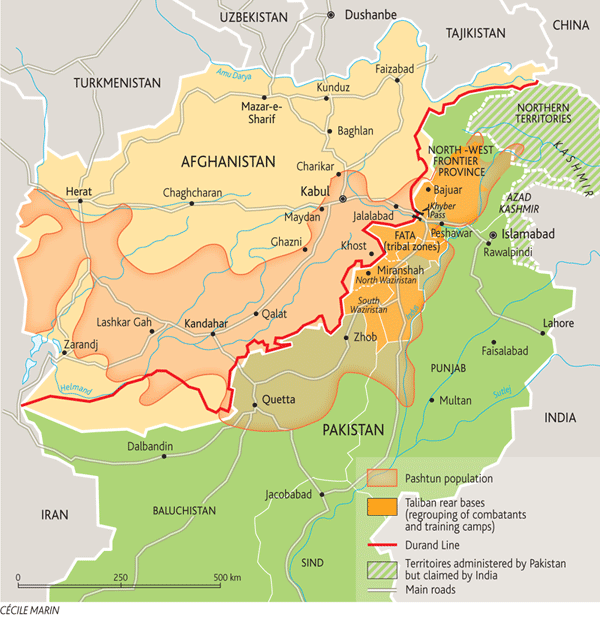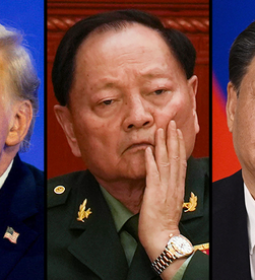US says: Farewell, Afghanistan

By Steven Kinzer, Boston Globe
LIKE A DISTANT light at the end of an excruciatingly long tunnel, the prospect of American withdrawal from Afghanistan now seems to glimmer ahead. Several rounds of negotiation in Russia, Qatar, and elsewhere have produced the outlines of an agreement. Details are unknown, but by all accounts, the accord will be based around a simple deal: the United States pulls its troops out and the Taliban pledges to never again host terror groups.
This would be a most un-American peace deal. Rather than a declaration of victory, it would be a reluctant acceptance of stubborn facts on the ground. Afghans repelled British invaders in the 19th century and Soviet invaders in the 20th. For nearly two decades they have held the United States at bay. By leaving Afghanistan to its fate, we would be admitting failure. This horrifies many in Washington. Americans fervently embrace the illusion that their country can succeed at anything — including crushing mountain fighters thousands of miles away who believe they are patriots resisting a foreigner invader.
This month, 70 members of the US Senate voted to reprimand President Trump for daring to consider “precipitous withdrawal” from Afghanistan — as if leaving after 18 years could be considered precipitous. Retired generals and other doom-mongers have warned that the only way to secure our homeland is to occupy Afghanistan forever — “to protect our values for as long as it takes,” in the words of Ryan Crocker, a former US ambassador to Afghanistan. That would mean indefinitely extending a project that has no prospect of success and costs a staggering $45 billion per year. Ambassador Crocker asserts that withdrawal would “effectively be a surrender, and we’re just negotiating the terms.” He’s right. It might delicately be called “negotiated capitulation.” By whatever name, it requires facing unpleasant reality.
To withdraw from Afghanistan would be to acknowledge the limits of American power. Some consider that unthinkable — an intolerable loss of face and a dangerous admission of impotence. Yet the United States bleeds strategic power by pursuing doomed missions. It never made sense for us to spend our blood and treasure supporting a spectacularly corrupt regime in the landlocked heart of Central Asia. Presidents Bush and Obama, fearing the political consequences of admitting failure, hid behind the rhetoric of “continuing threats” and “finishing the job” to keep the Afghan war going. That appealed to our “can-do” mentality — the quintessentially American belief that if you want something badly enough and work for it hard enough, you’ll achieve it. By suing for peace in Afghanistan, we are admitting how costly that fantasy can be.
Given the power of pro-war lobbies in Washington, US withdrawal from Afghanistan is hardly a done deal. But if it does happen, what would it mean? The government of President Ashraf Ghani might collapse. Violence would probably continue as armed factions vie for power. The Taliban would insist on either a strong central government that they would dominate, or a weak one that would allow them to govern their Pashtun heartland. Social evils that the Taliban condemns, like pederasty and the heroin trade, would probably be curbed. Women’s rights would be restricted — although perhaps not more than under the current regime, whose greatest achievement in this area is raising Afghanistan from its position as the most dangerous country in the world for women (2011) to the second-most (2018). Levels of corruption might drop. Much of what happens will look bad to us — except that we will no longer be there.
The best way for the United States to withdraw from Afghanistan would be to coordinate our withdrawal with nearby countries. They have an even more urgent interest in a stable Afghanistan than we do. Yet because “they” includes countries we consider rivals or enemies — China, Russia, Iran, and Turkey — we are reluctant to cooperate with them. Nor do we like the idea of shaping regional policy together with our European allies. Their governments are eager to help stabilize Afghanistan, because another surge of Afghan immigrants could devastate European politics by giving new fuel to right-wing populists. But because Europe’s policy toward Central Asia includes accommodating Iran — an essential buffer to future migrant flows — the United States cannot accept it. Our reluctance to hand off our Afghan project to Asian and European powers is shortsighted and self-defeating. We should be grateful for the chance to escape from an inferno we did so much to create.
No imperial power willingly admits defeat in a distant conflict. The only way to do it is to realize that pushing ahead would be even more painful. Western powers faced this dilemma in 1954, after Communist forces overran the French garrison at Dien Bien Phu in Indochina. The French knew they had been defeated and prepared to withdraw. Prime Minister Winston Churchill of Great Britain agreed that there was no alternative, because “the loss of the fortress must be faced.” American leaders refused to face that truth. Instead they launched a new war in Vietnam, with devastating consequences for all parties. President Nixon finally accepted defeat 30 years later. He called it “peace with honor.” If word play like that allows us to escape the Afghanistan quagmire, we should cheer.
Stephen Kinzer is a senior fellow at the Watson Institute for International and Public Affairs at Brown University.
- Previous World Court: Britain must return Indian Ocean islands to Mauritius
- Next In his grandfather’s footsteps, North Korea’s Kim arrives in Vietnam
















